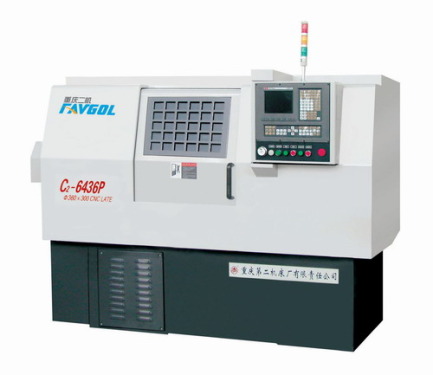Neural Network Helps Improve CNC Machine Tool Industry
Boride-based powders are commonly used in thermal spray applications due to their high hardness, wear resistance, and thermal stability. Some commonly used boride powders for thermal spray include: Boride Powder,Nickel Boride Powder,Chromium Boride Powder,Thermal Spray Materails Luoyang Golden Egret Geotools Co., Ltd , https://www.hvofpowders.com A neural network is an operation model consisting of a large number of nodes (or neurons) and interconnections between them. Each node represents a specific output function called an Activation Function. The connection between each two nodes represents a weighted value for the signal passing through the connection, called the weight, which is equivalent to the memory of the artificial neural network. The output of the network differs depending on the way the network is connected, the weight value and the incentive function. The network itself is usually an approximation of a certain algorithm or function in nature, or it may be an expression of a logic strategy.
A neural network is an operation model consisting of a large number of nodes (or neurons) and interconnections between them. Each node represents a specific output function called an Activation Function. The connection between each two nodes represents a weighted value for the signal passing through the connection, called the weight, which is equivalent to the memory of the artificial neural network. The output of the network differs depending on the way the network is connected, the weight value and the incentive function. The network itself is usually an approximation of a certain algorithm or function in nature, or it may be an expression of a logic strategy.
The use of artificial neural networks will enable new advantages in CNC machine tools. First of all it has a self-learning function. For example, when image recognition is implemented, only a number of different image templates and corresponding results to be recognized are input to the artificial neural network, and the network will gradually learn to recognize similar images through a self-learning function. The self-learning function is of special significance for prediction.
Second, it has a associative memory function. This association can be achieved using an artificial neural network feedback network. In addition it has the ability to search for optimized solutions at high speed. Finding an optimal solution to a complex problem often requires a large amount of computation. Using a feedback-type artificial neural network designed for a problem, the high-speed computing capability of the computer can be used to find an optimal solution.
With the advancement of science and technology, CNC machine tools are constantly evolving. It not only extends the human strength, but also gradually solves the problem of replacing mental labor, including independent process planning, fixture management, production control, and maintenance management. The machine tool will become More and more intelligent and humane. In the factory of the future, CNC machine tools are not only a processing equipment, but also a node in the plant management network, with more extensive human-machine interaction and object-to-item communication functions, thus creating a new era of numerical control technology.
1. Boron Carbide (B4C): Boron carbide is one of the hardest materials known, making it ideal for applications requiring high wear resistance. It also has excellent chemical resistance and thermal stability.
2. Titanium Diboride (TiB2): Titanium diboride offers a combination of high hardness, excellent wear resistance, and good thermal conductivity. It is often used in applications where both wear and heat resistance are required.
3. Tungsten Boride (WB): Tungsten boride powders have high hardness, excellent wear resistance, and good thermal stability. They are commonly used in thermal spray applications for their ability to withstand high temperatures and resist wear.
4. Chromium Boride (CrB2): Chromium boride powders offer high hardness, wear resistance, and good thermal stability. They are often used in thermal spray coatings for applications requiring resistance to abrasion and erosion.
These boride-based powders can be used in various thermal spray processes such as plasma spraying, high-velocity oxy-fuel (HVOF) spraying, and detonation gun spraying to provide protective coatings on surfaces that require enhanced wear resistance and thermal protection.